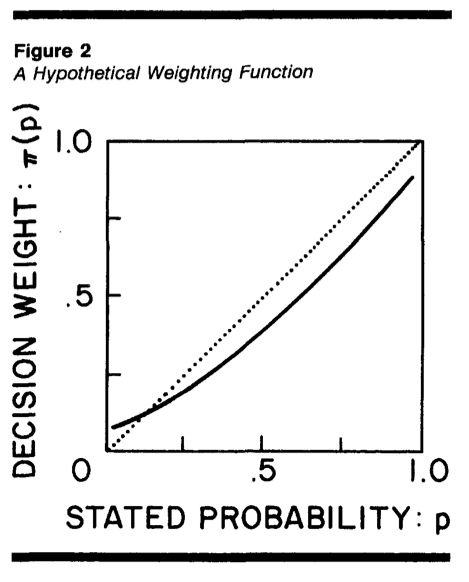- SQLserver中的增删改查和数据类型
就是有点傻
SQLserver数据库sql
SQLserver增删查改语句SQLServer是一种关系数据库管理系统,用于存储、管理和检索数据。以下是一些基本的SQL语句,用于在SQLServer中执行增删查改操作:插入数据(Insert)插入完整行:INSERTINTO表名(列1,列2,列3,...)VALUES(值1,值2,值3,...);插入多行:INSERTINTO表名(列1,列2,列3,...)VALUES(值1a,值2a,值3a
- oracle操作xml笔记
chushiyunen
oraclexml笔记
文章目录第一个例子EXTRACTVALUE()方法oracle这么成熟的数据库,肯定对xml有很好的支持了。第一个例子创建表:CREATETABLExml_table(idNUMBERPRIMARYKEY,xml_dataXMLType);插入数据:INSERTINTOxml_table(id,xml_data)VALUES(1,XMLType('Value'));查询:SELECTEXTRACT
- Python之聚合函数
_AndyLau
手把手学pythonpython
Python聚合函数文章目录Python聚合函数聚合函数使用多个聚合函数结合`annotate`和`values`进行分组聚合注意事项F表达式和Q表达式F表达式Q表达式注意事项视图HTML中的表单概述Django中表单概述ModelForm关键点使用示例创建ModelForm在视图中使用ModelForm模板总结Cookie和SessionDjango中的Cookie操作Django中的Sessi
- python内置函数reversed_Python3内置函数——reversed() = 翻转我的世界
大龙说学区
v.颠倒(reverse的过去式和过去分词);翻转help(reversed)Helponclassreversedinmodulebuiltins:classreversed(object)|reversed(sequence)->reverseiteratorovervaluesofthesequence||Returnareverseiterator||Methodsdefinedhere:
- Organize Data for Faster Insight
SEO-狼术
netDelphi控件java
OrganizeDataforFasterInsightSortingfunctionalityallowsspreadsheetuserstobringstructuretolargedatasetsbyarrangingrowsbasedonselectedcolumnvalues.Datasortinginaspreadsheetcontrolisafundamentalfeaturetha
- 后端密码加密:守护用户数据的钢铁长城
“系统被拖库了!”这可能是开发者最恐惧的噩梦。而当用户密码以明文暴露时,灾难将席卷每个用户——密码重用的惯性会让黑客轻松攻破他们在其他平台的账户。作为后端开发者,我们握有守护用户安全的第一道钥匙:科学的密码存储策略。血的教训:密码存储的三大禁忌❌明文存储--致命操作!永远不要这样做!INSERTINTOusers(username,password)VALUES('alice','P@ssw0rd
- MySQL 中,insert语句中的value与values的区别
清心歌
#MySQL数据库mysql数据库javaspring
向表中所有的列插入数据(插入多行数据):insertinto表名values(列值1,列值2,列值3...列值n),(列值a,列值b,列值c...列值n),...........(列值A,列值B,列值C...列值N)向表中指定的列插入数据(插入单行数据):insertinto表名(列名1,列名2,列名3...列名n)value(列值1,列值2,列值3...列值n)注意:表名()中列名必须跟valu
- 今日分享:怎么综合分析5星股票?
5starsstocks-alsoknownas5starsstocks,passivestocks,dividendstocks,valuestocksandincomestocks5starsstocksRatingDefinitionsRatingCriteriaMeaningInvestmentAdvice★★★★★Price≤80%intrinsicvalue,widemoat,high
- MySQL数据库----DML语句
目录DML-介绍SQL-DML-添加数据SQL-DML-修改数据SQL-DML-删除数据DML-介绍DML英文全称是DataManipulationLanguage(数据操作语言),用来对数据库中表的数据记录进行增删改操作。添加数据(INSERT)修改数据(UPDATE)删除数据(DELETE)SQL-DML-添加数据给指定字段添加数据:INSERTINTO表名(字段1,字段2,…)VALUES(
- MyBatis获取主键的3种高效方式解析
代码的余温
mybatis
MyBatis获取自动生成主键ID的三种核心方式及适用场景:一、JDBC方式(数据库支持自增主键)适用数据库:MySQL/SQLServer等支持AUTO_INCREMENT或IDENTITY的数据库配置方法:在标签中添加useGeneratedKeys和keyProperty属性:INSERTINTOuser(name)VALUES(#{name})执行插入后,主键自动注入参数对象的id属性:U
- 【NumPy】np.append() 函数:数组的末尾添加元素,并返回一个新的数组
彬彬侠
数据分析numpyappendnp.append添加元素python
NumPynp.append()函数np.append()用于在NumPy数组的末尾添加元素,并返回一个新的数组。注意:np.append()不会修改原数组,而是返回一个新的数组。1.np.append()语法numpy.append(arr,values,axis=None)arr:原始数组,可以是一维或多维数组。values:要添加的值,可以是单个数、列表、NumPy数组。axis:(可选)指
- Android 中 函数实现多个返回值的几种方式
在编程中,函数通常只能返回一个值。但通过使用对象封装、Pair、Triple、数组、列表或Bundle方式,可以轻松地返回多个值。1、对象封装方式创建数据类来封装需要返回的多个值。dataclassResult(valcode:Int,valmessage:String)fungetMultiValues():Result{returnResult(1,"success")}//调用方式valre
- 板凳-------Mysql cookbook学习 (十--15)
fengye207161
mysql学习android
10.31编写时间处理工具sql--创建测试数据--插入所有原始数据,使用STR_TO_DATE函数处理不同格式的日期INSERTINTOdate_test(event_name,event_date)VALUES('Fred',STR_TO_DATE('04-13-70','%m-%d-%y')),('Mort',STR_TO_DATE('09-3-69','%m-%d-%y')),('Alic
- 【thinkphp5】Session和Cache记录微信accesstoken
hj1043
fastadminPHP微信java开发语言
记录一个项目实际遇到的坑,不要把token存放在session,要存在在cache里面!!因为Session并不能设置expire过期时间,Session::set()方法第三个参数是作用域,而非过期时间!!!因此不能混用cache的用法。session的set方法/***session设置*@paramstring$namesession名称*@parammixed$valuesession值*
- MySQL 数据操纵与数据库优化
熬夜的猪
数据库sqlmysql
MySQL数据库的DML一、创建(Create)1.基本语法INSERTINTO表名[(列名1,列名2,...)]VALUES(值1,值2,...);省略列名条件:当值的顺序与表结构完全一致时,可省略列名(需包含所有字段值)批量插入:单条语句插入多行数据提升效率INSERTINTOstudent(id,name,score)VALUES(1,'张三',99),(2,'李四',88),(3,'王五'
- 时序数据库IoTDB可实现的基本操作及命令汇总
时序数据说
时序数据库iotdb数据库物联网大数据开源
一、数据写入、删除与导出1.1数据写入在物联网场景下,元件产生的数据通常会自动写入。但有时,需要修改过去的数据,可以使用INSERT语句插入修改后的值,覆盖原数据。示例:INSERTINTOroot.BHSFC.Q1.W003(timestamp,speed)VALUES(1657472400000,2);1.2数据删除1.2.1SQL语句删除删除整个时间序列:DELETEFROMroot
- sql优化:
墨京
mysqlsql数据库
1.插入语句sql优化:insert语句优化:1.批量插入,这样可以避免多次的和数据库交互,提高性能。建议500-1000条数据一次批量插入。insertintot_ordervalues('1','o1','1'),('2','o2','1'),('3','o3','1')2.手动提交事物:避免多次的事物提交操作,当所有要插入的数据插入完成后,手动提交。STARTTRANSACTIONinser
- k8s中topologyKey 的作用
容器云
容器云kubernetes容器云原生
spec:affinity:nodeAffinity:requiredDuringSchedulingIgnoredDuringExecution:nodeSelectorTerms:-matchExpressions:-key:rcs-msg-notify-prodoperator:Invalues:-'true'podAffinity:requiredDuringSchedulingIgnor
- android15 修改默认亮度及关闭自动亮度调节
darling_user
Androidandroid
默认亮度1、先把设备亮度手动调整到对应亮度2、通过adb命令获取对应亮度值adbshellsettingsgetsystemscreen_brightness3、代码上修改默认亮度值SYS/frameworks/base/core/res/res/values/config.xml-102+255SYS/frameworks/base/packages/SettingsProvider/res/v
- android15设备不带闪烁指示灯,去掉设置及日历下的指示灯选项
darling_user
Androidandroid
SYS/vendor/sprd/platform/frameworks/base/core/FrameworkResOverlay/res/values/config.xml-true+falseSYS/vendor/sprd/platform/frameworks/base/core/res/res/values/config.xml-true+false</bool
- Python 数据分析与可视化 Day 3 - Pandas 数据筛选与排序操作
蓝婷儿
pythonpandas数据分析python
今日目标掌握DataFrame的条件筛选(布尔索引)学会多条件筛选、逻辑运算熟练使用排序(sort_values)提升数据组织力结合列选择进行数据提取分析一、列选择与基本筛选✅选择单列/多列df["成绩"]#返回Seriesdf[["姓名","成绩"]]#返回新的DataFrame✅条件筛选(布尔索引)#筛选出成绩大于80的学生df[df["成绩"]>80]#获取性别为“女”的学生df[df["性
- 使用LangChain社区库中的CSVLoader高效处理CSV数据
Zbb159
langchainjava服务器
在数据科学和机器学习领域,CSV文件是最常用的数据存储格式之一。它的简单性和广泛的兼容性使其成为数据交换的标准。然而,当面对大规模的CSV数据时,处理效率和灵活性显得至关重要。本文将向您介绍如何使用LangChain社区库中的CSVLoader来高效处理CSV数据,并提供实际的代码示例来演示其强大的功能。技术背景介绍CSV(Comma-SeparatedValues)文件是一种简单的文本格式,用于
- http://syy7.com/a/25.php,vue_element/vue_elementui.sql at 3ffdcb477ce3fbbc24cf1a4d7e3481a187023a02 ·...
毛心宇
INSERTINTO`user_tb`VALUES('1','女','burtyang','C041580E1C6192B6084E03CE76D5C05C','18',null,'data:image/jpeg;base64,/9j/4AAQSkZJRgABAQEASABIAAD/2wBDAAwICQoJBwwKCQoNDAwOER0TERAQESMZGxUdKiUsKyklKCguNEI4Lj
- HashMap中keySet()以及values()方法的使用
大然Ryan
java开发hashmapiteratorstringclassc
Map是一个映射,里面的数据是无序的,这一点HashSet是一样的,另外Map最独特的地方是,它是成对出现的。由于Map是一个接口,所以我们来研究一下实现它的类HashMap;HashMaphashMap=newHashMap();hashMap.put("a","zhang");hashMap.put("a","zhang");hashMap.put("a","zhang");System.ou
- jdbc插入时获取自增id号
大海无量波涛凶
javaweb
//2.进行插入方法publicbooleancharu(ImageImage){booleanflag=false;//1.先连接数据库Connectionconnection=getCon();PreparedStatementpst=null;Stringsql="INSERTINTOtb_banqiimgs(img_name,img_path)values(?,?)";Integerent
- Mybatis获取新增记录(insert)的主键值
博风
#MySQL#OracleMybatisMySQLOracle数据库主键
Mysql、SQLServer:insertintobs_test(uuid,create_time,update_time,status,dm_desc,dm_desc2)values(#{uuid,jdbcType=VARCHAR},now(),now(),#{status,jdbcType=INTEGER},#{dmDesc,jdbcType=VARCHAR},#{dmDesc2,jdbcT
- func() got multiple values for argument ‘name‘
1、问题概述?在执行python程序的时候,提示如下问题:func()gotmultiplevaluesforargument'name'.func()的参数“name”有多个值本质:就是参数传递的时候,同一个参数名称使用了多次,如下:test(id,name,sex,name,age,name)如上面函数,name使用了多次,但是只能使用一次2、解决办法将重复传值的参数去除即可值得注意的是:这个
- 29、pandas库数据透视表【用Python进行AI数据分析进阶教程】
理工男大辉郎
pandaspython人工智能数据分析
用Python进行AI数据分析进阶教程29:pandas库数据透视表关键词:数据透视表、pivot_table()函数、聚合函数、行索引、列索引摘要:本文介绍了Pandas库中用于数据分析的重要工具——数据透视表(PivotTable),重点讲解了pivot_table()函数的使用方法及其关键参数。数据透视表可以对数据进行分组、聚合和重塑,帮助用户从不同维度分析数据。文中详细说明了values、
- MATLAB动态规划算法详解及实例代码动态规划
爱玩三国杀的界徐盛
算法matlab动态规划
动态规划(DynamicProgramming,DP)是解决复杂优化问题的一种高效算法,核心思想是将问题分解为重叠子问题,通过记忆化存储避免重复计算。本文以经典的**0-1背包问题**为例,详细讲解如何在MATLAB中实现动态规划算法,并提供完整代码和解析。一、问题描述:0-1背包问题输入:物品重量`weights=[2,3,4,5]`,物品价值`values=[3,4,5,6]`,背包容量`ca
- 【RTP】基于mediasoup的RtpPacket的H.264打包、解包和demo 1:不含扩展
等风来不如迎风去
WebRTC入门与实战h.264javaandroid
目前打包、解包没有对扩展进行操作测试结果===H.264RTPPacketizationandDepacketizationTest===1.GeneratingsimulatedH.264frames...Generated6H.264frames2.PacketizingH.264framestoRTPpackets...Frame#0(size:1535bytes,I-fra
- JVM StackMapTable 属性的作用及理解
lijingyao8206
jvm字节码Class文件StackMapTable
在Java 6版本之后JVM引入了栈图(Stack Map Table)概念。为了提高验证过程的效率,在字节码规范中添加了Stack Map Table属性,以下简称栈图,其方法的code属性中存储了局部变量和操作数的类型验证以及字节码的偏移量。也就是一个method需要且仅对应一个Stack Map Table。在Java 7版
- 回调函数调用方法
百合不是茶
java
最近在看大神写的代码时,.发现其中使用了很多的回调 ,以前只是在学习的时候经常用到 ,现在写个笔记 记录一下
代码很简单:
MainDemo :调用方法 得到方法的返回结果
- [时间机器]制造时间机器需要一些材料
comsci
制造
根据我的计算和推测,要完全实现制造一台时间机器,需要某些我们这个世界不存在的物质
和材料...
甚至可以这样说,这种材料和物质,我们在反应堆中也无法获得......
- 开口埋怨不如闭口做事
邓集海
邓集海 做人 做事 工作
“开口埋怨,不如闭口做事。”不是名人名言,而是一个普通父亲对儿子的训导。但是,因为这句训导,这位普通父亲却造就了一个名人儿子。这位普通父亲造就的名人儿子,叫张明正。 张明正出身贫寒,读书时成绩差,常挨老师批评。高中毕业,张明正连普通大学的分数线都没上。高考成绩出来后,平时开口怨这怨那的张明正,不从自身找原因,而是不停地埋怨自己家庭条件不好、埋怨父母没有给他创造良好的学习环境。
- jQuery插件开发全解析,类级别与对象级别开发
IT独行者
jquery开发插件 函数
jQuery插件的开发包括两种: 一种是类级别的插件开发,即给
jQuery添加新的全局函数,相当于给
jQuery类本身添加方法。
jQuery的全局函数就是属于
jQuery命名空间的函数,另一种是对象级别的插件开发,即给
jQuery对象添加方法。下面就两种函数的开发做详细的说明。
1
、类级别的插件开发 类级别的插件开发最直接的理解就是给jQuer
- Rome解析Rss
413277409
Rome解析Rss
import java.net.URL;
import java.util.List;
import org.junit.Test;
import com.sun.syndication.feed.synd.SyndCategory;
import com.sun.syndication.feed.synd.S
- RSA加密解密
无量
加密解密rsa
RSA加密解密代码
代码有待整理
package com.tongbanjie.commons.util;
import java.security.Key;
import java.security.KeyFactory;
import java.security.KeyPair;
import java.security.KeyPairGenerat
- linux 软件安装遇到的问题
aichenglong
linux遇到的问题ftp
1 ftp配置中遇到的问题
500 OOPS: cannot change directory
出现该问题的原因:是SELinux安装机制的问题.只要disable SELinux就可以了
修改方法:1 修改/etc/selinux/config 中SELINUX=disabled
2 source /etc
- 面试心得
alafqq
面试
最近面试了好几家公司。记录下;
支付宝,面试我的人胖胖的,看着人挺好的;博彦外包的职位,面试失败;
阿里金融,面试官人也挺和善,只不过我让他吐血了。。。
由于印象比较深,记录下;
1,自我介绍
2,说下八种基本类型;(算上string。楼主才答了3种,哈哈,string其实不是基本类型,是引用类型)
3,什么是包装类,包装类的优点;
4,平时看过什么书?NND,什么书都没看过。。照样
- java的多态性探讨
百合不是茶
java
java的多态性是指main方法在调用属性的时候类可以对这一属性做出反应的情况
//package 1;
class A{
public void test(){
System.out.println("A");
}
}
class D extends A{
public void test(){
S
- 网络编程基础篇之JavaScript-学习笔记
bijian1013
JavaScript
1.documentWrite
<html>
<head>
<script language="JavaScript">
document.write("这是电脑网络学校");
document.close();
</script>
</h
- 探索JUnit4扩展:深入Rule
bijian1013
JUnitRule单元测试
本文将进一步探究Rule的应用,展示如何使用Rule来替代@BeforeClass,@AfterClass,@Before和@After的功能。
在上一篇中提到,可以使用Rule替代现有的大部分Runner扩展,而且也不提倡对Runner中的withBefores(),withAfte
- [CSS]CSS浮动十五条规则
bit1129
css
这些浮动规则,主要是参考CSS权威指南关于浮动规则的总结,然后添加一些简单的例子以验证和理解这些规则。
1. 所有的页面元素都可以浮动 2. 一个元素浮动后,会成为块级元素,比如<span>,a, strong等都会变成块级元素 3.一个元素左浮动,会向最近的块级父元素的左上角移动,直到浮动元素的左外边界碰到块级父元素的左内边界;如果这个块级父元素已经有浮动元素停靠了
- 【Kafka六】Kafka Producer和Consumer多Broker、多Partition场景
bit1129
partition
0.Kafka服务器配置
3个broker
1个topic,6个partition,副本因子是2
2个consumer,每个consumer三个线程并发读取
1. Producer
package kafka.examples.multibrokers.producers;
import java.util.Properties;
import java.util.
- zabbix_agentd.conf配置文件详解
ronin47
zabbix 配置文件
Aliaskey的别名,例如 Alias=ttlsa.userid:vfs.file.regexp[/etc/passwd,^ttlsa:.:([0-9]+),,,,\1], 或者ttlsa的用户ID。你可以使用key:vfs.file.regexp[/etc/passwd,^ttlsa:.: ([0-9]+),,,,\1],也可以使用ttlsa.userid。备注: 别名不能重复,但是可以有多个
- java--19.用矩阵求Fibonacci数列的第N项
bylijinnan
fibonacci
参考了网上的思路,写了个Java版的:
public class Fibonacci {
final static int[] A={1,1,1,0};
public static void main(String[] args) {
int n=7;
for(int i=0;i<=n;i++){
int f=fibonac
- Netty源码学习-LengthFieldBasedFrameDecoder
bylijinnan
javanetty
先看看LengthFieldBasedFrameDecoder的官方API
http://docs.jboss.org/netty/3.1/api/org/jboss/netty/handler/codec/frame/LengthFieldBasedFrameDecoder.html
API举例说明了LengthFieldBasedFrameDecoder的解析机制,如下:
实
- AES加密解密
chicony
加密解密
AES加解密算法,使用Base64做转码以及辅助加密:
package com.wintv.common;
import javax.crypto.Cipher;
import javax.crypto.spec.IvParameterSpec;
import javax.crypto.spec.SecretKeySpec;
import sun.misc.BASE64Decod
- 文件编码格式转换
ctrain
编码格式
package com.test;
import java.io.File;
import java.io.FileInputStream;
import java.io.FileOutputStream;
import java.io.IOException;
import java.io.InputStream;
import java.io.OutputStream;
- mysql 在linux客户端插入数据中文乱码
daizj
mysql中文乱码
1、查看系统客户端,数据库,连接层的编码
查看方法: http://daizj.iteye.com/blog/2174993
进入mysql,通过如下命令查看数据库编码方式: mysql> show variables like 'character_set_%'; +--------------------------+------
- 好代码是廉价的代码
dcj3sjt126com
程序员读书
长久以来我一直主张:好代码是廉价的代码。
当我跟做开发的同事说出这话时,他们的第一反应是一种惊愕,然后是将近一个星期的嘲笑,把它当作一个笑话来讲。 当他们走近看我的表情、知道我是认真的时,才收敛一点。
当最初的惊愕消退后,他们会用一些这样的话来反驳: “好代码不廉价,好代码是采用经过数十年计算机科学研究和积累得出的最佳实践设计模式和方法论建立起来的精心制作的程序代码。”
我只
- Android网络请求库——android-async-http
dcj3sjt126com
android
在iOS开发中有大名鼎鼎的ASIHttpRequest库,用来处理网络请求操作,今天要介绍的是一个在Android上同样强大的网络请求库android-async-http,目前非常火的应用Instagram和Pinterest的Android版就是用的这个网络请求库。这个网络请求库是基于Apache HttpClient库之上的一个异步网络请求处理库,网络处理均基于Android的非UI线程,通
- ORACLE 复习笔记之SQL语句的优化
eksliang
SQL优化Oracle sql语句优化SQL语句的优化
转载请出自出处:http://eksliang.iteye.com/blog/2097999
SQL语句的优化总结如下
sql语句的优化可以按照如下六个步骤进行:
合理使用索引
避免或者简化排序
消除对大表的扫描
避免复杂的通配符匹配
调整子查询的性能
EXISTS和IN运算符
下面我就按照上面这六个步骤分别进行总结:
- 浅析:Android 嵌套滑动机制(NestedScrolling)
gg163
android移动开发滑动机制嵌套
谷歌在发布安卓 Lollipop版本之后,为了更好的用户体验,Google为Android的滑动机制提供了NestedScrolling特性
NestedScrolling的特性可以体现在哪里呢?<!--[if !supportLineBreakNewLine]--><!--[endif]-->
比如你使用了Toolbar,下面一个ScrollView,向上滚
- 使用hovertree菜单作为后台导航
hvt
JavaScriptjquery.nethovertreeasp.net
hovertree是一个jquery菜单插件,官方网址:http://keleyi.com/jq/hovertree/ ,可以登录该网址体验效果。
0.1.3版本:http://keleyi.com/jq/hovertree/demo/demo.0.1.3.htm
hovertree插件包含文件:
http://keleyi.com/jq/hovertree/css
- SVG 教程 (二)矩形
天梯梦
svg
SVG <rect> SVG Shapes
SVG有一些预定义的形状元素,可被开发者使用和操作:
矩形 <rect>
圆形 <circle>
椭圆 <ellipse>
线 <line>
折线 <polyline>
多边形 <polygon>
路径 <path>
- 一个简单的队列
luyulong
java数据结构队列
public class MyQueue {
private long[] arr;
private int front;
private int end;
// 有效数据的大小
private int elements;
public MyQueue() {
arr = new long[10];
elements = 0;
front
- 基础数据结构和算法九:Binary Search Tree
sunwinner
Algorithm
A binary search tree (BST) is a binary tree where each node has a Comparable key (and an associated value) and satisfies the restriction that the key in any node is larger than the keys in all
- 项目出现的一些问题和体会
Steven-Walker
DAOWebservlet
第一篇博客不知道要写点什么,就先来点近阶段的感悟吧。
这几天学了servlet和数据库等知识,就参照老方的视频写了一个简单的增删改查的,完成了最简单的一些功能,使用了三层架构。
dao层完成的是对数据库具体的功能实现,service层调用了dao层的实现方法,具体对servlet提供支持。
&
- 高手问答:Java老A带你全面提升Java单兵作战能力!
ITeye管理员
java
本期特邀《Java特种兵》作者:谢宇,CSDN论坛ID: xieyuooo 针对JAVA问题给予大家解答,欢迎网友积极提问,与专家一起讨论!
作者简介:
淘宝网资深Java工程师,CSDN超人气博主,人称“胖哥”。
CSDN博客地址:
http://blog.csdn.net/xieyuooo
作者在进入大学前是一个不折不扣的计算机白痴,曾经被人笑话过不懂鼠标是什么,


